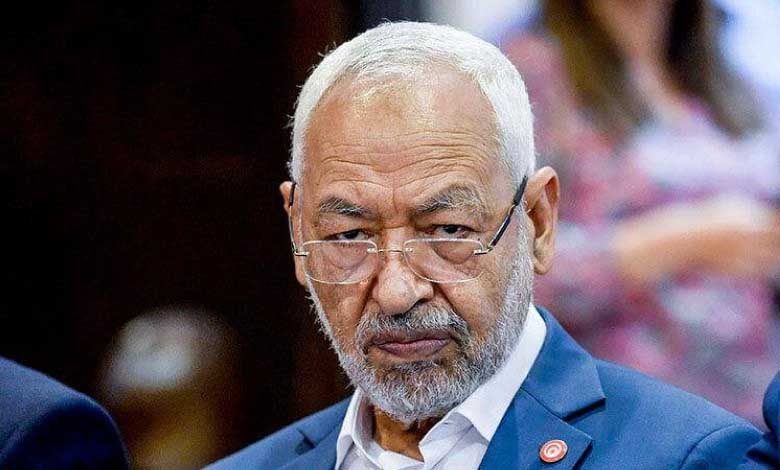Tunisian parliamentarian describes Ghannouchi as the leader of terrorism in Tunisia

Events in the Tunisian political arena are nearing the end of the page of the Muslim Brotherhood Movement after it departed from power, the arrest of its leaders, the closure of its headquarters, departure from the political equation, the arrest of its leader, and the announcement of a ban on its activities on Tunisian soil.
Fatima el-Masdi, a Tunisian MP known for her anti-Ennahda and all branches of the Muslim Brotherhood, said: The page of the Brotherhood is over in Tunisia since the start of the accountability process on July 25, 2021. She described the leader of the organization, Rached Ghannouchi, who is currently imprisoned for conspiring against the security of the state, as the leader of terrorism in Tunisia.
El-Masdi described the Brotherhood’s renaissance as a movement linked to terrorism, saying, “We are waiting for its classification as a terrorist movement to be resolved once and for all, especially since all of its leaders are currently in prison on charges of conspiring against state security and national security and its connection with the file of terrorists’ travel to hotbeds of tension.”
Regarding the recording, which includes a conversation between Ghannouchi and a Tunisian terrorist, el-Masdi said, “In 2017, I followed a press conference held by security syndicate members, and I was a witness to that. At that time, Ghannouchi revealed the content of this video, which was linking him to a Tunisian terrorist in Syria.”
“The investigation is now underway with Ghannouchi to reveal the extent of this organization’s involvement in terrorism,” she said. “He can no longer provide a medical certificate to evade the investigation, as was the case before.”
On February 20th, Rachid Ghannouchi, the leader of the Tunisian Muslim Brotherhood, appeared before the investigating judge of the Anti-Terrorism Court (a specialized court) regarding a recording that included a conversation he had with members of the terrorist organization Ansar Al-Sharia.
Ansar al-Sharia is a banned organization in Tunisia that assassinates leaders; left-wing Chokri Belaid and nationalist Mohamed Brahmi in 2013.
The defense team for Chokri Belaid and Brahmi, links between Ansar Al-Sharia and the Ennahda movement, and confirms that the Muslim Brotherhood organization was involved in the two assassination crimes, where an investigation was opened with Ghannouchi after the security union filed a complaint against him saying: He had a recording of a meeting between Ghannouchi and leaders of the terrorist Ansar Al-Sharia.
“In his complaint, the security syndicate stated that it had obtained a video of a meeting between Ghannouchi and Ansar al-Sharia, and that it had provided the recording to their superiors, but that they destroyed and hid the recording.”
El-Masdi spoke to the same source about an initiative presented by MPs to support national sovereignty and stand alongside the president against foreign interference in the country’s affairs, noting that it is now under study.
The initiative consists of confronting foreign hostility and working to assert national sovereignty, forming a committee to follow up on terrorism cases, sending terrorists to terrorist hotbeds, demanding the extradition of those wanted by foreign countries for terrorism-related cases and cases of conspiracy against state security, and coordinating with the Ministry of Foreign Affairs to activate legal measures against those involved in terrorism cases and those holed up in exile.
It also aims to find ways to coordinate between the various official Tunisian authorities to notify the International Police Organization of the legality of the procedures and subpoenas issued by the Tunisian judiciary against those prosecuted as part of a series of proven terrorist crimes and to refute all that are promoted as politically-motivated prosecutions and fabricated files.
According to el-Masdi, the initiative proposed to parliament calls for internationalizing the file of networks that send terrorists to hotbeds of conflict by studying the submission of a joint international judicial file with Syria, Egypt, and Libya as part of the restoration of diplomatic relations with Syria and reaching more data on this issue.
“This file includes cross-border crimes that fall within the framework of war crimes and crimes against humanity and fall under the scope of international criminal law, and to bring the issue to the attention of the UN Security Council for a decision about international terrorism lists, ” she said.
In the initiative, el-Masdi proposed establishing a joint structure with countries affected by terrorism and travel to investigate, prosecute and extradite fugitives, and enhancing security, military and judicial cooperation.












